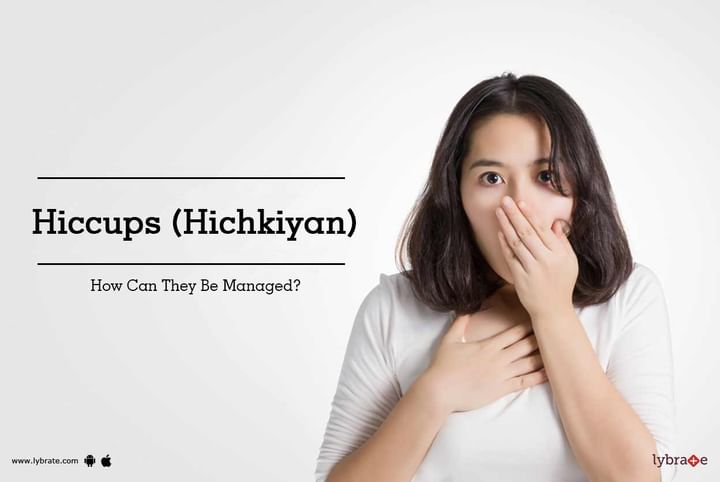Hiccups (Hichkiyan) - How Can They Be Managed?
You are sitting with a colleague and all of a sudden you hear that 'hic' sound and you try to pass it off in good humor, but it just doesn't end and there is that 'hic' sound again and not only it is increasing with each passing second it also becomes louder. Hiccups have a tendency to arise at some of the most inappropriate moments and although it is a health condition, is embarrassing for all of us. Clinically hiccups are defined as involuntary contractions of the diaphragm muscle, located at the base of the lungs. Such spasms lead to sudden contraction of the vocal cords, while you are inhaling air and makes you gasp with the characteristic ‘hic’ sound. It is an uncontrolled reflex action, often triggered for no apparent reason.
Hiccups occur frequently and are more common in newborns and infants. A bout of hiccups generally continues for a few minutes and normally subsides on its own. Hiccups often occur in a constant rhythmic pattern and are set off by anything that creates a pressure on or around the diaphragm, such as
- Swallowing or eating your food too quickly
- Eating extremely hot and spicy food
- Indigestion
- Consumption of aerated fizzy beverages
- Lack of sleep, stress and exhaustion
- Pregnancy
- Smoking
- Excessive alcohol
- Intake of certain medications
How problematic it can be
In most cases, hiccups stop within a short period of time. Persistent hiccups, however, reoccur over a span of 48 hours and some continue for over a month and are medically termed as intractable hiccups. In most cases, hiccups subside on their own and do not require any medical attention. However, in some cases, medical attention is required, specifically, when hiccups can cause breathing difficulties, vomiting and affects your overall sleeping and eating cycle. Additionally, relentless hiccupping can be extremely painful and tiring and can also hamper your daily routine along with discomfort in the upper abdominal region.
Suggested home remedies
Hiccups are generally not serious and most often can be managed with simple home remedies. Some of these home remedies include:
- Drinking a glass of water in one go
- Holding your breath for a while
- Breathing evenly
Persistent hiccups, that occur at frequent intervals and continue for weeks and months can indicate an underlying health condition. Thus, you must visit a doctor if your hiccups do not subside easily. Incessant hiccups on the other side are a sign of liver, abdominal, and lung diseases and problems such as stroke, brain tumors and other nervous disorders, which can cause a disturbance in the functioning of the diaphragm.
Medications
In case of painful, frequent hiccups, the physician may prescribe certain medications, which include muscle relaxants, sedatives, analgesics or any other kind of stimulants that can help in providing a remedy.
How can you ‘prevent’ it?
The onset of hiccups are involuntary spasms, thus cannot often be predicted or prevented. However, certain precautions can be taken to avoid recurrence. Abstinence from smoking, controlled drinking, and avoid swallowing your food too quickly, etc. are only a few ways that can help control the frequency of hiccups. However, it is always advisable to get yourself examined by a medical practitioner in case of a prolonged spell of hiccups. For any concern and query consult an expert & get answers to your questions!



+1.svg)
